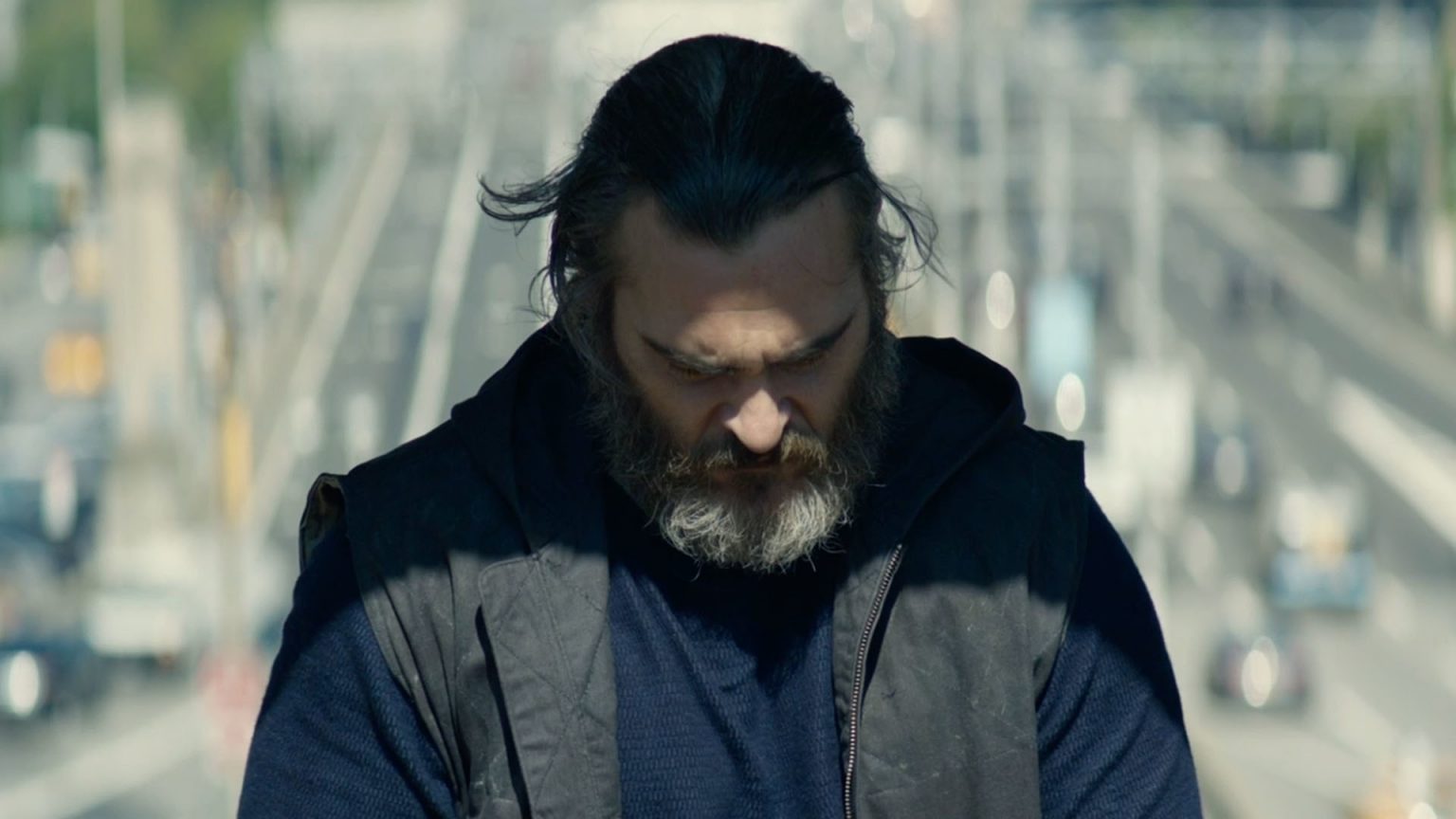With some films, you want to be entertained. And with others, you want to think. Rarely though, is there a great film that is entertaining, intelligent, and also a full-blown assault on the senses—a film that purposefully leaves you reeling. Then again, Lynne Ramsay doesn’t make easily digestible films; she makes great films that haunt you long after the credits roll.
All of Ramsay’s films are intensely focused on a single idea: To explore her central character’s traumatic headspace. If I were to apply an “auteur theory” to Ramsay, I would say this exploration is her defining stylistic and thematic interest. In Ratcatcher’s (1999), Ramsay’s first full-length movie, she details the aftermath of a young boy’s death from the point of view of the kid’s best friend—who may or may not have killed him. In We Need To Talk About Kevin (2011), teamed up with the incomparable Tilda Swinton, Ramsay explores what a mother goes through after her son not only kills his father and younger sister but also goes on a killing spree at his high school. Ramsay’s latest film, You Were Never Really Here (2018) is no different, as she explores the delusional and deeply troubled mind of a man who is the victim of child abuse, a veteran of war, and a current “hired gun,” who dreams (or enacts) his own suicide whenever he has downtime between “hits.” This is Joe, our protagonist—masterfully played, as always, by Joaquin Phoenix.
All of this is to say that like Ratcatcher, Morvern Callar, or We Need to Talk About Kevin, You Were Never Here is not an easy watch.
Unlike those other movies though, You Were Never Really Here operates as a genre film in which the inklings of traditional thriller and noir tropes can be seen. The film, billed as a modern-day Taxi Driver (1976), seems inspired by Scorsese’s exploration of the seedy underpinnings of a troubled anti-hero. The late-night settings, sparse dialogue, hints of a black market underworld, political corruption, and sex trafficking are elements present in both Scorsese’s masterpiece and Ramsay’s newest film. And while the comparisons between the two are apt in some ways, Ramsay strips the film to its bare bones, making the experience feel like something entirely different—a new beast within the genre.
The film runs at a brisk (and brutal) eighty-nine minutes. And in that runtime, not once is an expository sentence uttered. Joe’s flashbacks, which offer fleeting glimpses of his backstory, are often so ambiguous that they have an elusive, nightmarish quality. In a movie more interested in narrative than characterization, these moments would be made explicit in order to help the audience contextualize Joe’s choices. But in this movie, traditional storytelling takes a backseat to sensory experiences—experiences that entrap Joe.
The most basic way to explain the film’s story is that Joe, after retiring from the FBI, becomes a hired gun who specializes in rescuing young girls from sex trafficking. He develops a reputation for his brutality in dealing with the men who traffic these girls. This leads him to a New York Senator Albert Votto, who tells him that his daughter, Nina, is a victim of sex trafficking. “I want you to hurt them,” Votto tells him. Joe manages to get Nina out safely (and puts the beat down on a lot of people along the way). But just when he thinks all of the bloody fallout is in the rearview mirror, Joe becomes embroiled in a highly violent political situation that he never saw coming.
You Were Never Really Here is a cinematically elliptical experience. Background information and context are reduced to brief shots of visual and auditory cues. And with no expository dialogue detailing Joe’s life prior to the film’s start, the reasons for his grotesque, PTSD-activated visions are left up to the imagination of the viewer.
Even passersby on the street seem off to Joe. Are they delusions of his imagination? Do these young women who ask Joe to take a picture of the real or are they specters of his past, reminding him how so many beautiful young women are crushed beneath the boot of the world? There’s a moment when Joe waits for a train, and a woman with a bruised face stares at him. She doesn’t say anything, nor does Joe. These characters are living, breathing memories for him. Reminders of the people he couldn’t save, and reasons for why he has dedicated his life to vigilantism. Joe’s harsh, semi-delusional state is furthered by Jonny Greenwood’s accompanying score, which is appropriately discordant and surreal.
It has never been Ramsay’s style to explain her symbols and ideas, but rather to show, and show she does. While most of the more graphic scenes in the film occur off-screen (and sometimes heard in startling detail), Ramsay does not shy from showing the brutality of Joe’s world.
Despite You Were Never Really Here’s grounding in genre filmmaking and its graphic depictions of physical and sexual violence, it is Ramsay’s most efficient and gripping film, and, at times, her most beautiful—one that eschews some of the preoccupations of her earlier movies, and lives as a tightly constructed, stripped-to-the-bone neo-noir that will leave people reeling and discussing long after they exit the theater.
“It’s a beautiful day,” one character says near the end of the film. With Ramsay at the helm, you’re almost inclined to agree. Leaving the theater, feeling like I’d survived an amazing and harrowing experience, I realized that even in the worst of situations, there’s a flicker of light.
And I thought: This is bound to be one of the best films of the year.




